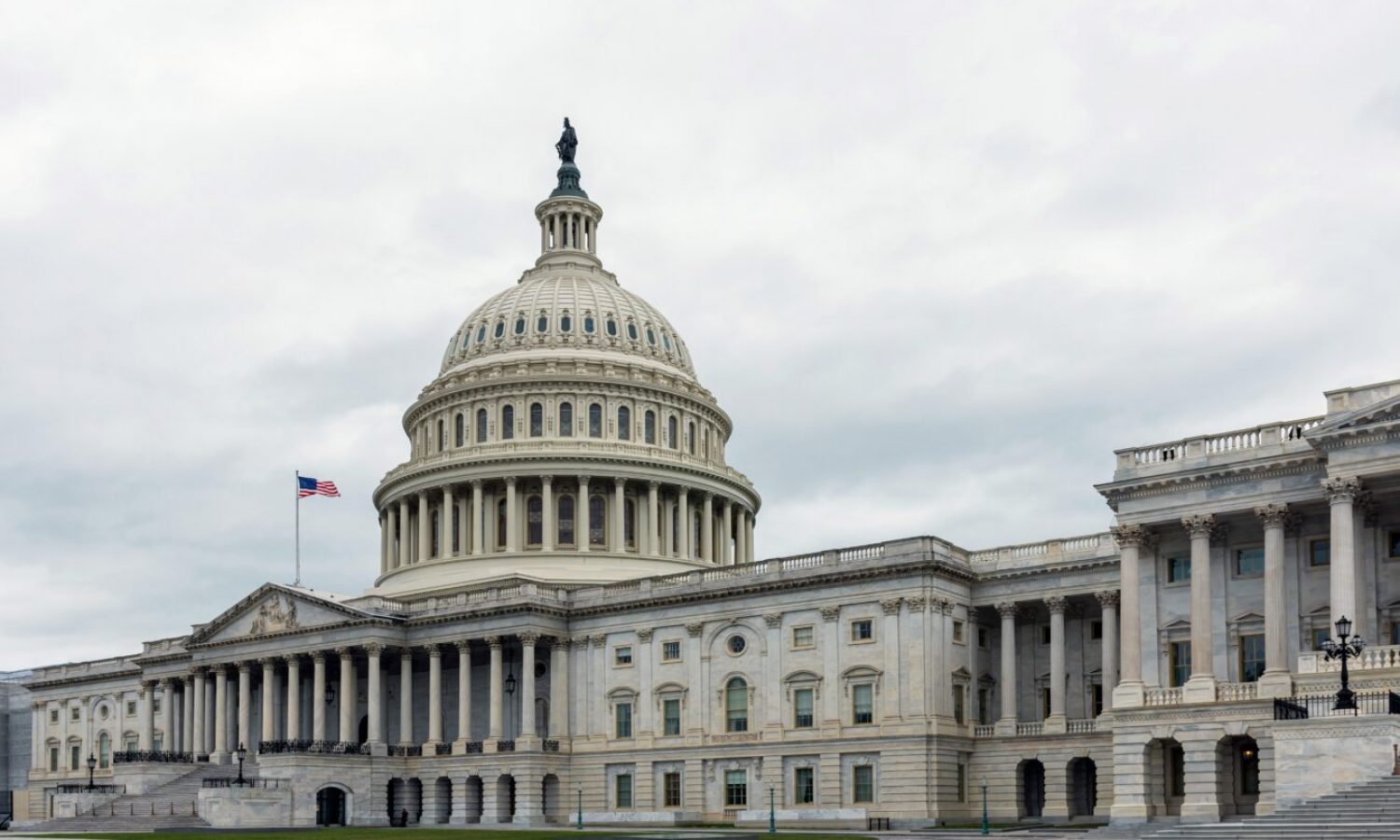i2Coalition July 2022 Legislative Brief
Your brief update on important Internet policy issues
OUTLOOK
With U.S. midterm elections only a few months away, Congress accelerated legislative activity on multiple fronts just prior to the August recess. On July 27, Senate Majority Leader Schumer (D-NY) and Senator Joe Manchin (D-WV) made a surprise announcement that they had revived core pieces of President Biden’s stalled economic and climate agenda by reaching a deal called the Inflation Reduction Act of 2022, to lower carbon emissions, promote clean energy, reduce health care costs, and shrink the federal deficit through additional corporate taxes and other tax provisions. Congressional Democrats hope to pass this package swiftly without needing
Republican votes using budget reconciliation procedures. On July 27, by a 64-33 vote, the Senate also passed the massive $280 billion bipartisan “CHIPS and Science Act” to counter competitive and national security threats from China. The House passed the bill by a strong bipartisan 243-187 vote on July 28. The bill would support the semiconductor manufacturing industry and address supply chain concerns while also vastly expanding federal spending on scientific research enabling the U.S. to maintain its technological edge. During July, the Biden Administration intensified efforts to blunt high inflation and demonstrate the economy’s resilience in the face of major challenges while continuing to respond to a series of ongoing domestic and global crises, including new COVID-19 waves, gun violence, growing U.S. tensions with Russia and China, the Ukraine war, and the aftermath of the Supreme Court’s Dobbs decision striking down Roe v. Wade and 50 years of women’s abortion rights. The House January 6 Select Committee closed out its first series of public hearings in July and promised more activity into the fall. The Department of Justice is also investigating the events of January 6 but has not publicly announced the scope and direction of its work.
TECH POLICY PRIORITIES
Section 230/Intermediary Liability
The states have continued a range of legislative and legal activity around intermediary liability and content moderation, invigorated in some legislatures by the Supreme Court’s ruling to overturn Roe v. Wade. For example, in late June, a bill was introduced in South Carolina that would prohibit any website from hosting content that provides information on how to obtain an abortion. The ramp-up of federal and state political campaigns this fall will spotlight the content moderation practices of the largest social media platforms for addressing misinformation and disinformation, as well as allegations of political bias.
Federal Privacy
On July 20, the House Energy and Commerce Committee voted to approve an amended version of comprehensive bipartisan federal consumer data privacy legislation, H.R. 8152, the American Data Privacy and Protection Act (ADPPA). The timing of a House floor vote on H.R. 8152 is unclear as preemption concerns raised by California members of the U.S. House and other California officials are pending. Senate Commerce Committee Chair Maria Cantwell has criticized the ADPPA for lacking strong enforcement provisions. On July 27, the Senate Commerce Committee did approve two bills to strengthen online privacy protection for children and teens (S. 1628 and S. 3663).
Copyright/IP
The Copyright Office (CO) is working on sharing its findings now that it has completed the series of stakeholder consultations on standard technical measures as defined in Section 512 of the Digital Millennium Copyright Act. The CO also released a report in late June on the viability of establishing ancillary copyright protections for press publishers, similar to protections being implemented in the EU that would require online news aggregators to pay publishers for excerpts of content they make available for online viewing. The CO concluded in the report that such new copyright protections were not warranted at this time.
Antitrust/Competition
Plans for House and Senate floor votes on the American Innovation and Choice Online Act (S.2992/H.R.3816) are unclear. Numerous other priorities dominating the Congressional calendar have delayed scheduling floor time for these measures this summer. The bill’s supporters may seek House and Senate floor votes this fall. The FTC filed a lawsuit to block Meta’s acquisition of a company that developed a virtual reality fitness app.
Broadband
Senators Ed Markey (D-MA) and Ron Wyden (D-OR) announced the introduction of the Net Neutrality and Broadband Justice Act on July 28. House Communications Subcommittee Vice Chair Doris Matsui is leading a similar effort in the House. The legislation would reinstate the FCC’s 2015 reclassification of broadband as a Communications Act Title II service. On July 13, the National Telecommunications and Information Administration reported that every state and U.S. territory had submitted a proposal for funding from the new $42.5 billion Broadband Equity, Access, and Deployment (BEAD) program created by last year’s bipartisan infrastructure law. NTIA also received submissions from many tribal nations for participation in the $1.4 billion digital equity grant fund. New FCC broadband maps to be used in funding determinations are still expected in the fall.
Find out more…
For more in-depth updates on Internet policy including issues that specifically impact your organization, please contact us about joining the i2Coalition.

